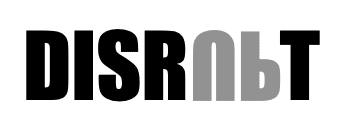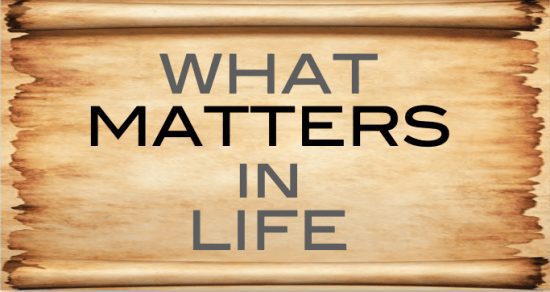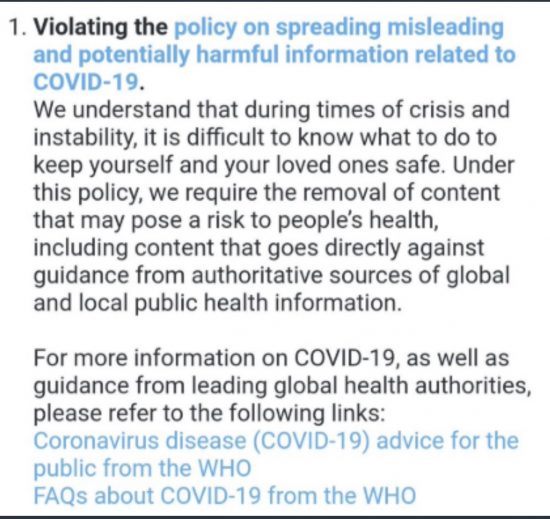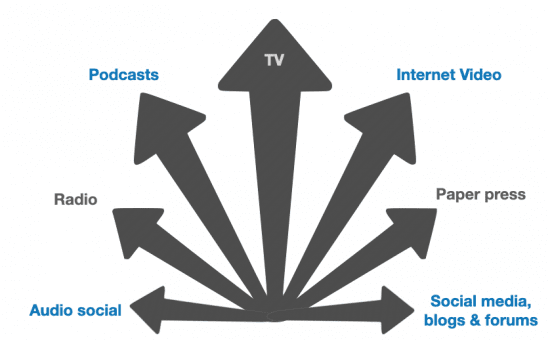I don’t often write about politics, even less do I tend to express strong opinions about my political leanings. However, as a leader and brand marketer, it’s impossible for me to stand by with what is happening these days. The fact is that anyone who thinks of him/herself as a good marketer must also be a keen observer of society and customer behavior. With a year of this pandemic under the belt, it’s clear that the consequences for business have been bad, compounded by the massive economic, societal and political shifts that are happening. I am more than ever certain that leadership styles and skills will need to change for businesses to survive.
A plethora of disruptive forces

In the last twenty years, we’ve had several major and global movements occupy our governments and its citizens. In no particular order, the list includes:
- climate change
- the great financial crisis of 2008
- a rise in or strengthening of authoritarian rulers
- a dozen major conflicts (mostly in the Middle East and Africa)
- topped off with a 28% increase in the world’s population.
While there have been other phenomena, I posit that the most novel and powerful revolution of all has actually been digital and the wave of new technologies. The massive and broad advancements in tech have upended the traditional models and transformed industries, not to mention created a new galaxy of opportunities and sectors (to name but a few: the web, social media, eCommerce, big data analytics, AI, energy storage… all of which Caleb and I covered in our book Futureproof…). Furthermore, the new technologies have played significant roles in many of the major movements (e.g. social media in the Arab Spring, algorithms in the financial crisis, drones in war zones…).
More invisible forces
The first twenty years of the 21st century have been bookended by two other seminal experiences that are more invisible in nature, yet are both incarnated by people who may be walking on the pavement in front of you:
- the ideological war waged by the jihadi terrorists
and - the SARS-CoV2 or Covid-19 pandemic.
In both cases, a person/stranger sitting beside you in public transportation or on the street can present a potential threat, possibly carrying an invisible force: bearing rage within against the infidels or carrying a harmful virus. The possibility and uncertainty is what makes it invisible.
Both of these threats will further compound the challenges of leading your business through a fast-changing future. As Jim Collins and Morten Hansen so rightly said in their 2011 book, Great by Choice, “Instability is chronic, uncertainty is permanent, change is accelerating, disruption is common.”
What matters more?

One of the fundamental trends to come out of these past two decades — and accelerated through the pandemic — is a focus on meaningfulness and what matters. Living in Manhattan and watching the 9/11 attacks happen outside my office window had a pivotal effect on my outlook on life. As I wrote in You Lead, that event began a determined journey on my part toward doing things that mattered. I know I was not alone in having this reaction.
But, now with this worldwide pandemic, everyone is concerned with what matters and we all seem to be facing an existential crisis. Moreover, Covid-19 — and the ways most governments have tended to deal with it — has brought to bear for the second time and at a global scale, the tension between privacy and our security. Whether it’s safety from a masked suicide bomber or a contagious virus, statewide surveillance has become more prevalent, abetted by digital tools, devices and platforms that have helped to track, trace and control the citizens. Even in “open” democracies, we seem bound to be more obsequious.
At the state level, the exchange has been: give us your privacy and we’ll provide your safety. We, the citizens, need to offer windows into our private spheres so that the government can better control or mitigate the dangers.
The exchange: give us your privacy
and we’ll give you safety.
The reality is that behind calls for transparency, there is always an agenda. A side-product that has come with this implicit exchange has been a loss of freedoms as governments around the world have felt emboldened to curtail their citizens’ liberties, whether it’s what you wear, where you go, with mandatory curfews and/or lockdowns. Accompanying this, obviously in varied ways and to different extents, we’ve seen a reduced ability to speak freely and to engage in constructive and full-ranging debate. Even in the democratic countries, dissenting opinions have been stifled. Mainstream media seem only too willing to trot out the party line. Of course, there are opposing mainstream media channels, but on both sides of the aisle, the discourse is decidedly lopsided. There’s little — in any case, not enough — tolerance for questions or alternate opinions.
I have an unproven hypothesis that this style of lording over the population might have come in reaction to the mess that is social media. It’s all been too many, too fast and too noisy for a governing body to manage.
A place for meaningful debate?
Notwithstanding the ongoing existence and worry of conspiracy theories and radical extremism, it is concerning to see how little nuance — sometimes labelled as heterodoxy — there is in social and public discourse. And, going back to technology — one of the major disruptive forces — the role of the tech titans has been central in this reduction in civil debate and breadth of argument. Whether it’s in open forums or in dark social circles, people are retiring to discuss only with like-minded individuals. The changes in policy (e.g. see the Guardian article on Whatsapp’s poorly executed change in terms) and a certain alignment between the major social media players and governments have had a decisive role in reducing heterodoxy and increasing distrust of media. This Twitter statement sets the tone:

Considering the rather diverse manner in which governments have approached the pandemic, there is already a challenge to understand what exactly an authoritative source might be. Is Sweden or Florida a lesser authority than California or China? And whose vaccine is to be trusted? Whose strain of virus is most dangerous? The issue of trust in our traditional sources is clearly at stake. As a result, we’ve seen a crop of new media outlets appearing, more or less credible and broad in their reach, that are attempting to bring another voice to the debate, in spite or because of censorship and/or de-platforming on the mass or major social media channels (Youtube, Twitter…).
Alternative media channels

In the face of a mainstream media that seems to be stifling debate, alternative media channels are appearing that attempt to bring different opinions and/or to nuance the main discourse. These can vary from independent sites with long-form articles to new podcasts and radio stations, magazines (there were 60 new print titles launched in the US despite the pandemic; source: Professor Samir Husni via NY Post) to web-television and cable television stations. To name a few of the more reputable ones, in the UK, there’s Unherd with Freddie Sayers and Lockdown Sceptics with Toby Young, FranceSoir TV in France or Quillette (Claire Lehmann) in the US/Australia. Among the different concepts, there is always the challenge of finding the best business model that, in media at least, is so important in order to ensure both longevity and independence of voice. Whether or not these media channels survive, they stand testimony to the need for a different narrative and place for debate.
Diminishing debate in schools a trend?
It’s not just in the media that we’ve seen this censorship. It’s also been in educational facilities, including many of the big name universities. Indeed, the frontlines of this battle for the homogenization of opinion seems to be playing out in Education around the world.
We’ve seen many universities ban certain individuals — including highly educated, recognizable names — because of intolerance of alternative voices. At its most despicable was the murder of the French school teacher Samuel Paty for daring to show cartoons of the prophet Muhammed and discussing freedom of expression. In England, there is the case of the Eton College teacher, Will Knowland who was dismissed for a lecture and YouTube video (The Patriarchy Paradox) that explores the conflict between the concepts of sex and gender and questions some of the radical feminist ideologies.
Doublethink or singlethink?
The UK Spectator magazine published an article by Kristina Murkett in support of the firing of Knowland, saying that “Eton is right to err on the side of caution.” I feel saddened by the loss of character and a willingness to white wash terms, topics and narratives that are, nonetheless, happening in people’s minds. It does feel that, in general in the West, we are taking our precautionary stance too far. It’s not without some irony that I note that George Orwell, author of the satirical 1984 who coined the terms of doublethink, newspeak and the unperson, went to Eton. We seem to have lost the nerve and the ability to entertain a robust dialogue, where we are able to disagree, discuss with civility and also learn from one another.
Meanwhile, I am heartened by the recent news that in the UK there is a proposal to nominate an official champion of freedom of speech. (Source: BBC News) As the BBC article relates, Tom Simpson, associate fellow at the Policy Exchange think tank and an associate professor at the Blavatnik School of Government, University of Oxford, said that:
a “very online culture” allowed the views of a minority to exert disproportionate influence on administrators, and to “exert a chilling effect on other academics”.
Each country will need to find its path, in the public and private spheres to regain an ability to engage in meaningful and genuine discussions, without the ominous threat of being cancelled or de-platformed.
Remember your history

Photo by Autoestima Cidada
As a further testimony to the changing times, we’ve also seen how the study of military history has hugely diminished in US universities (see Max Hastings’ article in Bloomberg). And, to my thinking, these two concepts — limiting freedom of expression and stopping to study history — are in a way related. Too often, with ideological zeal, there’s a rush to take people and events out of context. If past events may grate with today’s mores, they ought first to be properly understood in the context in which they occurred. Similarly, literature is always written in a certain time and place, allowing for further study of the past. We ought also to doggedly encourage reading of great literature.
I believe there is a non-partisan opportunity to review the state of political correctness. To wit, in 2016, Barack Obama (D), Clarence Thomas (R), and Michael Bloomberg (Independent) all warned, in commencement speeches they made on college campuses, about the excesses of political correctness. Is it not possible to admit that we’ve gone too far… without feeling like we are becoming reactionary stooges of a bygone time?
Evolving constructs of society
The other very clear phenomenon that has come out of this pandemic is that some segments of the economy are hyper-thriving while the great majority — even more flagrantly in the poorer countries — are suffering. The winners are largely speaking those powered by new tech. As a result, we’ve seen how the stock market has been trending higher in full contradiction to what the majority of people are experiencing in their own pocket books.
As such, with the growing imbalance in wealth and a lack of proper dialogue in our social fabric, it feels very much as if democracy and capitalism are under siege. The French author, Philippe Delmas (“Un pouvoir implacable et doux“) explains with conviction how tech has exacerbated the gap between the have and have nots, between big cities and smaller cities (much less the countryside), and where countries have more broadly integrated the technologies and those that have not. It seems that not only democracy, but capitalism is under siege as well. The mathematician physicist and economist, Eric Weinstein, wrote in a post on Edge.org:
“Capitalism and Communism which briefly resembled victor and vanquished, increasingly look more like Thelma and Louise; a tragic couple sent over the edge by forces beyond their control. What comes next is anyone’s guess and the world hangs in the balance.”
It’s a stark statement and suggests that the times ahead will be even more turbulent and unpredictable.
Bringing politics into work
For people in leadership positions at work, one of the thorniest questions is if, how and when to express one’s own personal political opinions. The answer is, of course, that it depends. First, what is your context? There’s a big difference if you are a founder/CEO of a startup versus a mid-level manager in a large international corporation. Second, what is the governance model of your business? Again there’s a big difference, for instance, between a publicly traded company versus a privately held company or a charity. Third, what is your corporate mission and strategy? This will help instruct what political stances will be important to your long-term future. Fourth, what is your personal North Star? Do you have a precise definition of the person you want to be? The key final question is to understand where/if there is overlap between your personal and professional North? By having a better and clearer understanding of one’s own North, it will be easier to be aligned with and stand up for one’s core values at work.
What do I stand for?
Insofar as I promised to lay down my own political opinion, the urge comes from an ongoing and vital need to elevate the debate. While I won’t present here a political manifesto, I stand for building bridges and bringing solutions rather than idly complaining.
In that I vote and am a swing voter as such in multiple countries, it’s not possible to pin me down on one single party. Further, I am loathe to state a party affiliation as I can never agree with the complete agenda of any one party. Moreover, I can’t trust any political candidate or party to accomplish its electoral agenda once in power. Notwithstanding the fact that I find the two-party system in the US completely unsatisfactory — as it makes the choice desperately binary — it is my conviction and mission to help people to find ways to discuss and debate in a more civil and constructive manner. For example, learning how opposing sides can still find terrains or topics on which to agree.
Connecting sides
While some of the principles and policies for Republicans and Democrats in the US are clearly distinguished, neither party platform is entirely satisfactory to me. I prefer small government and supporting business, but from a social standpoint I am pro choice, gun control and broader health care. So, I am happy to agree with traditional Republicans on certain issues and Democrats for others. Other than the fact that I must vote for one side or the other at election time, I sit comfortably with my opinion.
If we study our history, we can understand that divisive and hostile politics have been recurrent. My great grandfather, a one-term senator from South Carolina, gave a fiery speech on the senate floor in 1924 in which he said:
“I’m thoroughly disgusted by the way the government in Washington ‘works.’ There is almost total partisanship, both on the right and the left…. neither side talks to the other, and… the divide just seems to be getting worse… Self-interest comes before the national interest.”

And, surely, the debates were even thornier and damaging in the run-up to the 1860 presidential elections. Bottom line, I believe that the construction of these “opposing” agendas in the US is artificial and we should all learn to acknowledge with which policies on the other side of the aisle you can agree. We must find a way to converse and disagree in a civil manner. We must allow diverse opinions to be freely stated. We must recover the lost art of conversation.
For business leaders, there are, of course, many other issues and potential challenges ahead, including how to handle the future of work (i.e. office space and remote) or the consternating question of whether companies in a global economy will need to convert to a cyber currency. All in all, business leaders will be evermore challenged to chart their course successfully through the next period. It will be important to pay attention to cash and also to make sure to take care of your energies* to deal with the long road ahead. Business leaders will have to chart a course that ensures survival, yet also have the courage to stand up for what matters and to help steer society and governments around the world to protect one of the fundamental privileges of the western world which is our freedom.
Your thoughts and comments?
*If you’re looking for booster energy sessions, please do check out the Energy in Connection.
Banner image credit: Yogendra Singh on Unsplash
***If you like my writing and are interested in fostering more meaningful conversations in our society, please check out my Dialogos Substack. This newsletter will feature articles on why and how we can all improve our conversations, whether it’s at home, with friends, in society at large or at work. Subscription is free, but if you see value in it, you are welcome to contribute both materially and through your comments. Sign up here:











